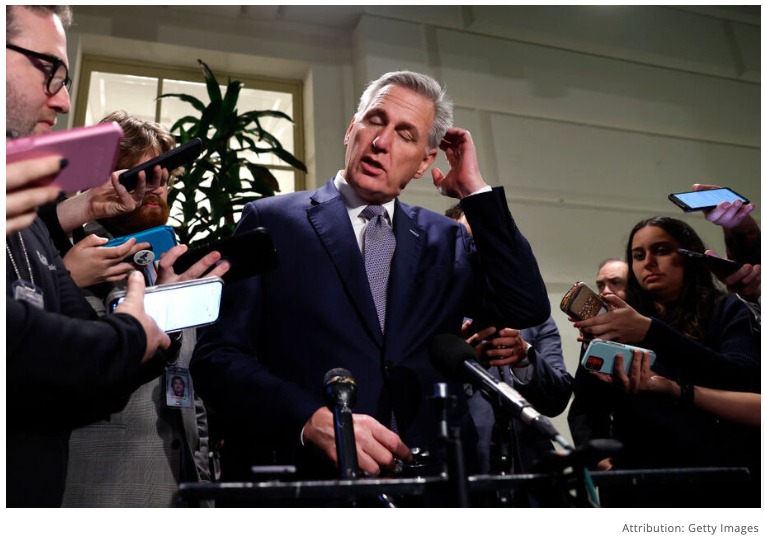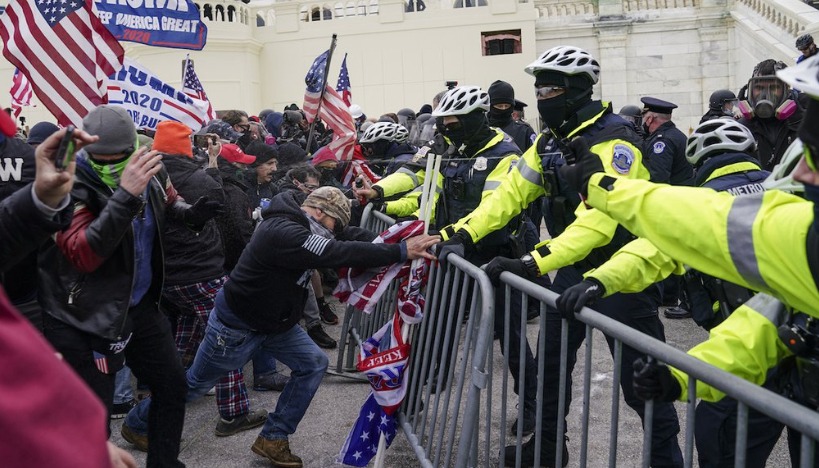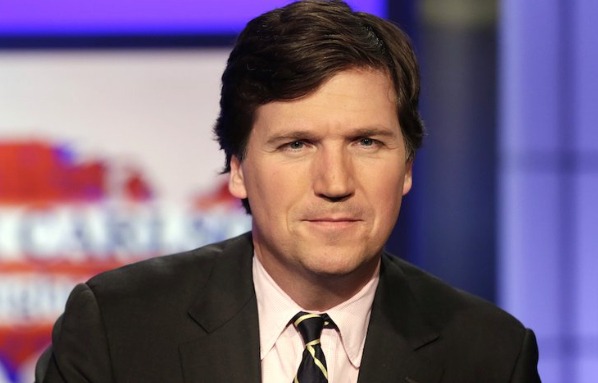The present climate in the House “is a disgrace for the Republican Party. It’s humiliating for the country. And it’s time we address and rectify the issue,” declared a senior House member on NBC’s “Meet the Press” this past Sunday. Surprisingly, those words didn’t come from House Minority Leader Hakeem Jeffries or Minority Whip Katherine Clark, but from Kevin McCarthy, the ex-speaker from the Republican side.
This sentiment from McCarthy wasn’t isolated. On Friday, he expressed to journalists that the Republicans “stand on shaky ground as a party.” However, he isn’t the sole Republican echoing such sentiments. House Foreign Affairs Committee Chairman Michael McCaul voiced on ABC’s “This Week,” “The global scenario is alarming. Our actions are perilous and most significantly, it’s a disgrace as it strengthens and encourages our rivals. Take Chairman Xi [Jinping] of China, for instance, who claims that democracy is flawed.”
Although McCaul is quick to criticize, his track record shows a lukewarm resistance to his party’s anti-democratic actions. He opposed both the proposal for an impartial bipartisan commission to delve into the Jan. 6 Capitol assault and the impeachment of Donald Trump post the incident. While McCaul might appreciate then-Vice President Mike Pence’s election certification, his inaction against attempts to contest the election results undermines his present critiques.
The concern isn’t limited to McCarthy and McCaul. Numerous Republicans have been vocal about the party’s internal chaos during their 20 days without a speaker. But tangible actions to reclaim their party from radical elements remain scarce.
The recent discussions about possibly enhancing Rep. Patrick McHenry’s role as speaker pro tempore alarmed Rep. Jim Banks. He exclaimed, “The current path is leading Republicans to their downfall. If we support a strategy that hands the Democrats the House’s reins, we’re betraying our Republican electorate.” Banks’ words essentially reflect the party’s dilemma: some members view any cooperative governance efforts as an unacceptable compromise.
Similarly, Rep. Eli Crane, who was among the eight Republicans voting against McCarthy, remarked, “I doubt many in this conference genuinely care about the American public’s desires.”
Such disillusionment among House Republicans isn’t new.
Drawing parallels with popular TV series, Rep. Nicole Malliotakis commented, “This feels like a terrible rendition of ‘Veep’,” after Majority Leader Steve Scalise withdrew his bid for the speaker’s role. She continued, “It’s evolving into ‘House of Cards’.” Echoing her sentiment in that New York Times piece, Rep. Don Bacon stated, “We’re failing as a legislative entity when we ought to lead.”
From the look of things, the Republicans’ internal dynamics might be shifting from the drama of “House of Cards” to the intense politicking of “Game of Thrones.”
Decoding the House’s Republican Discontent: An Insightful Guide
The recent news piece highlighted growing concerns and self-criticism within the Republican Party, particularly among its House members. To truly grasp the implications of this report, let’s break down the key elements and personalities involved.
Key Players:
- Kevin McCarthy: Once the Speaker of the House for the Republicans, McCarthy plays a crucial role in the party. His critique of the party’s current state, calling it “embarrassing,” is significant because it comes from within the party’s leadership ranks.
- Michael McCaul: As the Chairman of the House Foreign Affairs Committee, McCaul’s opinions hold weight. His recent remarks emphasize concerns about the global perception of American democracy.
- Rep. Jim Banks & Rep. Eli Crane: Both are influential Republican members of the House. Their comments shed light on internal disagreements about the party’s direction.
- Rep. Nicole Malliotakis & Rep. Don Bacon: Their views provide a broader perspective on the dissatisfaction among House Republicans about their party’s functioning.
Key Terms:
- House: Refers to the House of Representatives, one of the two chambers of the U.S. Congress. It plays a pivotal role in law-making and represents the states based on population.
- Speaker of the House: The presiding officer of the House of Representatives. The Speaker is second in the U.S. presidential line of succession.
- Speaker Pro Tempore: A temporary role, often assumed in the absence of the Speaker. Recent discussions around enhancing the powers of this position have sparked debates within the Republican Party.
- Majority Leader: A key figure in the House, responsible for scheduling legislation for consideration and planning the daily, weekly, and annual legislative agendas.
Significance:
The article underscores a growing unrest and self-reflection within the Republican Party. Several Republican leaders are openly expressing concerns about the party’s direction, its inability to function effectively, and its international image.
Furthermore, the backdrop of this discontent is the party’s actions and decisions following the controversial events of January 6th (the Capitol assault) and the subsequent handling of Donald Trump’s role in it.
McCaul’s emphasis on the global repercussions of the party’s actions is particularly noteworthy. He suggests that such internal dysfunction could embolden adversaries like China’s Chairman Xi Jinping, who might perceive American democracy as weak or flawed.
Context:
The references to popular TV shows “Veep,” “House of Cards,” and “Game of Thrones” are metaphorical. They are used to depict the current chaos and power struggles within the Republican Party. Such internal strife and lack of cohesive leadership could have broader implications for the party’s future electoral prospects and its ability to present a united front on policy issues.
Conclusion:
The article captures a moment of introspection for the Republican Party, with several influential figures voicing concerns about its trajectory. For those observing U.S. politics, understanding these internal dynamics provides a clearer picture of the challenges the party faces and the potential implications for American governance and global perceptions.








